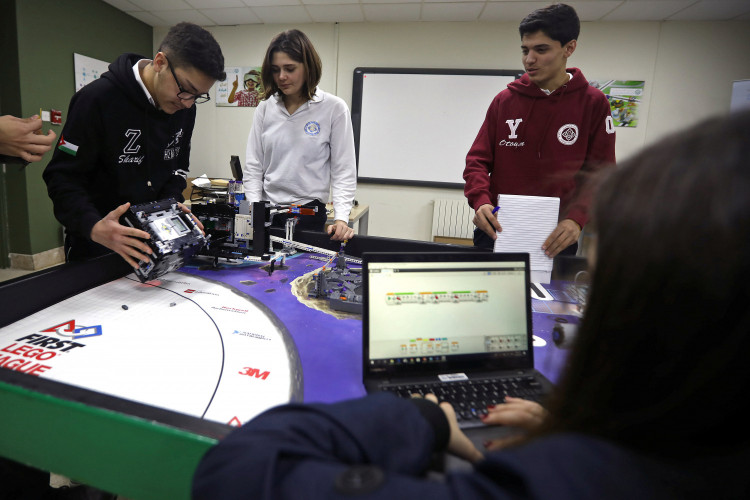China's Ministry of Education announced on Tuesday that it will open 400 majors that focus on big data, artificial intelligence (AI), and robotics in universities around the country this year to help the country achieve its goal of global competence.
According to The Global Times, the Ministry said it will also keep promoting online courses (MOOCs) this year in a bid to encourage students to take part in the country's Belt and Road Initiative (BRI).
Deputy Director at the Ministry of Education's Department of Higher Education, Fain Hailin told the outlet, "AI and big data are newly established majors and will be taught in some directions like computer application technology, information, and communication, control science and engineering."
Fan added that some languages that are less commonly introduced in Chinese universities will be promoted in 2019 as part of President Xi Jinping's BRI program. These languages include Kurdish, Maori, Dhivehi, Belarusian, and Bislama since these are languages of countries that pledged participation in the initiative.
Some of the universities that opened MOOCs are China's top-notch Peking University and vocational school Nanjing Institute of Industry Technology. Other colleges have also started introducing online courses.
Aside from AI and big data courses, medical sciences majors have also been announced. 74 university-affiliated hospitals have received the green light for majors such as translational medicine, intelligent medicine, and precision medicine. The partnership with hospitals will serve as demonstration centers for clinical teaching and training programs.
Over the past couple of years, China has established the world's largest higher education system with 1,245 undergraduate colleges that cater to 28.31 million students.
Aside from the introduction of technologically-focused majors in universities, China previously revealed plans of modernizing the country's overall education system over the next 15 years.
According to Caixin Global, Beijing is looking to spend an amount equivalent to no less than 4 percent of the country's total GDP on education. The government said it will continue to spend on modern technology that will help improve the learning experience of Chinese learners.
In line with its plans to provide a modernized learning environment for China's educational sect, Beijing has plans of establishing more affordable private kindergarten facilities. Rural education will also be improved in the coming years.
Young people will be encouraged to attend high school so they will consider higher education. For youth who don't go to school, vocational education will be promoted so they will be trained for specific jobs in various industries.
China's draft plan for modern education also reiterated that it will support Confucius Institutes both locally and internationally.





